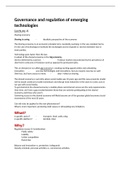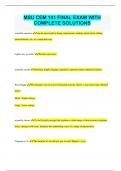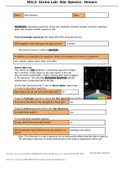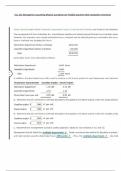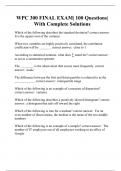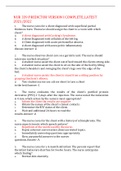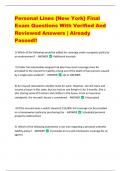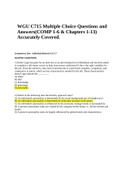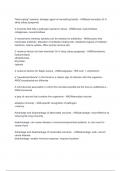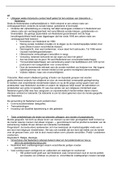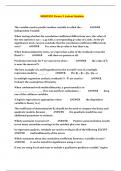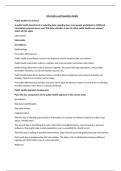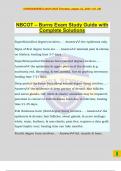Governance and regulation of emerging
technologies
Lecture 4
Sharing economy
Sharing is caring - idealistic perspective of the economy
The sharing economy is an economic principle tat is constantly evolving. In the very simplest terms,
it’s the use of technology to facilitate the exchanged access of goods or services between two or
more parties.
Technology goes faster then the law.
A subset of the shared economy is the Gig economy.
Service delivered by a person - A labour market characterized by the prevalence of
short-term contracts or freelance work as opposed to permanent jobs.
This on demand or so-called gig economy is creating exciting opportunities and unleashing
innovation. - yes new technologies and innovations, but you require new law as well.
Own less, but have excess to more. - uber + bike/car sharing
The shared economy is currently where social media was 10 years ago and this new economic model
will no doubt continue to build momentum and disrupt most industries in the years to come, just as
we saw with social media.
To get started in the shared economy a mobile phone and internet access are the only requirements.
Over time, we’ll see a gap created beween those that are actively participating in the shared
economy and those who aren’t.
Garnering access to the shared economy will likely become on of the greatest global economc/social
movements of the next 20 years.
Can old rules be applied to the new phenomenon?
What is more important, protecting (old) values or stimulating new initiatives.
What?
A specific sector? - transport, food, walk a dog
A specific platform? - Airnbnb, Uber
Why?
Regulatory issues & Consideration
Public safety
Liability
Unfair competition
Racial bias
Balance and innovation vs. protection /safeguards
Socially oriented, personal activities vs. commercial activities.
technologies
Lecture 4
Sharing economy
Sharing is caring - idealistic perspective of the economy
The sharing economy is an economic principle tat is constantly evolving. In the very simplest terms,
it’s the use of technology to facilitate the exchanged access of goods or services between two or
more parties.
Technology goes faster then the law.
A subset of the shared economy is the Gig economy.
Service delivered by a person - A labour market characterized by the prevalence of
short-term contracts or freelance work as opposed to permanent jobs.
This on demand or so-called gig economy is creating exciting opportunities and unleashing
innovation. - yes new technologies and innovations, but you require new law as well.
Own less, but have excess to more. - uber + bike/car sharing
The shared economy is currently where social media was 10 years ago and this new economic model
will no doubt continue to build momentum and disrupt most industries in the years to come, just as
we saw with social media.
To get started in the shared economy a mobile phone and internet access are the only requirements.
Over time, we’ll see a gap created beween those that are actively participating in the shared
economy and those who aren’t.
Garnering access to the shared economy will likely become on of the greatest global economc/social
movements of the next 20 years.
Can old rules be applied to the new phenomenon?
What is more important, protecting (old) values or stimulating new initiatives.
What?
A specific sector? - transport, food, walk a dog
A specific platform? - Airnbnb, Uber
Why?
Regulatory issues & Consideration
Public safety
Liability
Unfair competition
Racial bias
Balance and innovation vs. protection /safeguards
Socially oriented, personal activities vs. commercial activities.


